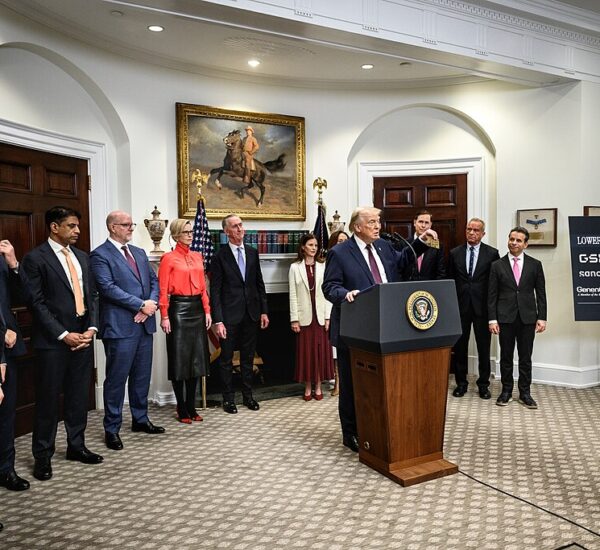House Republicans Taunt China
A group of House Republicans is introducing a new piece of legislation aimed at reaffirming Taiwan’s status as an independent entity in U.S. communications, countering Beijing’s aggressive claims over the island. The legislation, called the America Supports Taiwan Act, is spearheaded by Rep. Byron Donalds (R-Fla.), with Reps. Mike Collins (R-Ga.), Barry Moore (R-Ala.), and Tom Tiffany (R-Wis.) as co-sponsors. This bill seeks to replace the term “Chinese Taipei” with “Taiwan” in all U.S. government communications, which has been a point of contention for China.
Currently, while the U.S. does not officially recognize Taiwan as an independent nation, it maintains unofficial relations with the island. The U.S. government has, at times, used the term “Chinese Taipei” in certain diplomatic settings, such as in reference to Taiwan’s representation in Washington. This has been done to appease Beijing, which insists on recognizing Taiwan as part of its territory. However, the America Supports Taiwan Act aims to correct this diplomatic practice and stop the use of “Chinese Taipei,” calling instead for clear and direct recognition of Taiwan’s status as a self-governed entity.
Rep. Donalds has made it clear that this legislation is not about changing the official stance on Taiwan’s independence but about pushing back against Beijing’s attempts to diplomatically isolate Taiwan. He criticized the use of “Chinese Taipei” as a tool of China’s diplomatic coercion, asserting that it diminishes Taiwan’s sovereignty and creates false diplomatic distinctions.
“Taiwan is a vital partner in the global fight for democracy and freedom,” Donalds stated. “We need to be forthright with the world and with the American people—Taiwan deserves to be recognized for what it is: an independent, autonomous entity.”
This legislation is seen as part of a broader effort to strengthen U.S. support for Taiwan, particularly in the face of growing Chinese pressure. By enacting the changes, the bill would require U.S. agencies to update their websites and official documentation to use the term “Taiwan” rather than “Chinese Taipei” within 14 days of the bill’s passage. However, there are exceptions, such as when referencing Taiwan in international organizations where it officially uses the “Chinese Taipei” designation, or when discussing historical context related to China’s attempts to coerce Taiwan.
The bill represents a crucial step in standing up to the Chinese Communist Party and reinforcing the U.S.’s commitment to its allies and principles of self-determination. In a world where authoritarian regimes like China’s are growing bolder, Republicans believe that it is essential to send a strong message of support for Taiwan’s sovereignty and democratic values.






